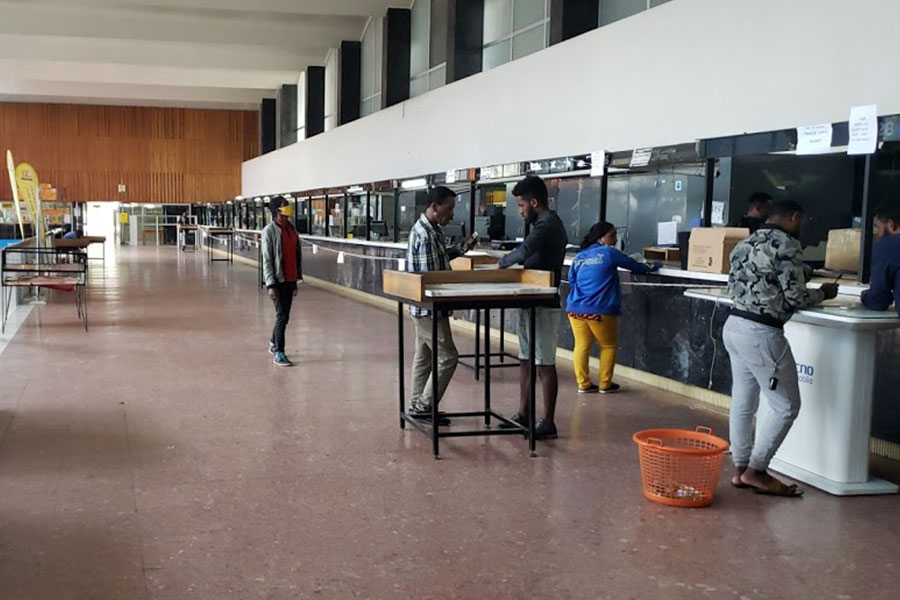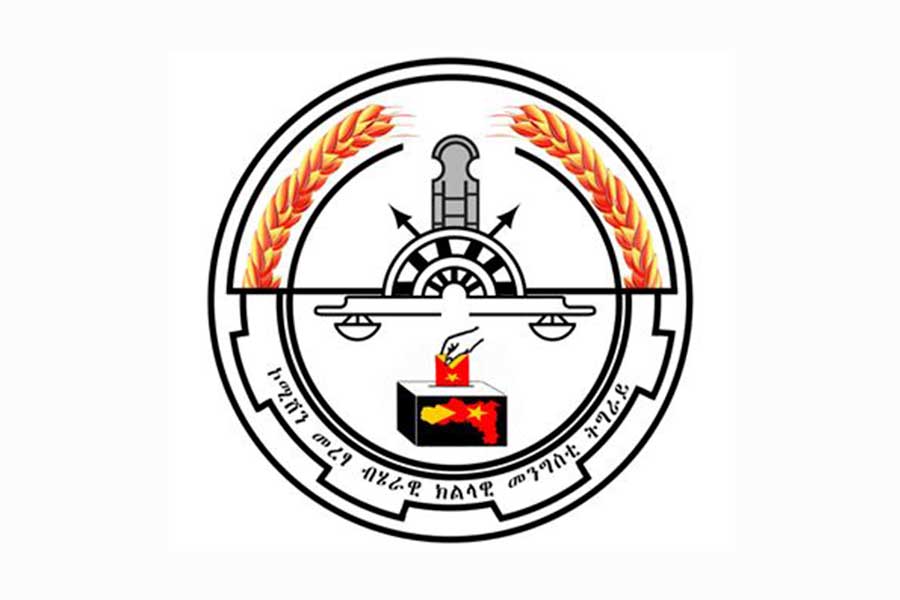
Apr 17 , 2020.
Regional states in Ethiopia are created to serve the mere purpose of administration, Prime Minister Abiy Ahmed (PhD) recently argued. Addressing members of parliament during the ratification of the five-month state of emergency - put in place with the justification that it would help the country’s fight to contain the spread of Novel Coronavirus (COVID-19) - he took the position that there is only one sovereign entity in Ethiopia. And that was the national state, as actualised in the federal government.
He has the conviction that the regional states are fixtures that would make the administration of a lingo-culturally diverse nation possible; they are administrative demarcations. No more. It is not the first time for him to perhaps think aloud that there is only one sovereign entity under the Ethiopian state.
He cannot be more wrong both on factual and theoretical grounds.
The Prime Minister once tried to enlighten parliamentarians that Ethiopia's federalism is a type of "holding together," instead of "coming together." In that, he may have a point. Only to a degree though.
The Ethiopian unitary state predates the current Constitution, which restructured the country into a federal republic. The federation was not formed among preexisting states which decided to "come together" for the pursuit of happiness by citizens. It is an arrangement designed to "hold" a fractured state whose legitimacy was contested by dozens of armed separatist groups before the 1990s.
The backdrop of the Constitution comes into greater focus in a country that neither completed its nation-state building process nor has had the luxury to start over if ever such a thing was possible. It instead had to contend with the social, economic and geopolitical circumstances in which it found itself. Indeed, the current Constitution is a managed compromise of sorts, between the left-leaning victors of the military regime and Western-educated liberals, instead of articulation of an agreed-upon national identity and spirit. True, the political force that espoused the idea of Ethiopia mainly informed by the Kibre-Negestvision of a unitary civilisation state was excluded from the constitutional drafting and ratification process. It has proven to be a consequential mistake in the long term.
However, federalism is a political system designed to share powers between the centre and the various constituent units of a country but with relationships determined by law as well as checks and balances. Repulsed by a system of tyranny, Alexander Hamilton, James Madison and George Washington were credited for upholding a federal system of government by attempting to balance collective order with individual liberty. Today, 29 countries comprising 40pc of the global population have emulated this form of political system. Ethiopia has been on this road for two decades since the existing Constitution was ratified in August 1995.
Abiy misspoke, for his reading of the Constitution is not consistent with what is ascribed in the document. It was an unfortunate and gross misunderstanding of the intent of the Constitution, which to the contrary grants sovereignty to the federal government and the regional states. This is more than a delinquent detail, because it came from the head of government who has sworn to uphold and defend the supreme law of the land.
Known to be an ardent advocate of the civilisation-state brand of Ethiopia, it is within his rights to argue and call for constitutional amendments if he wants to redefine the devolution of power between the federal government and the regional states.
Currently, the debate has spilled over into the application of the current state of emergency and how it might be able to concur with the one now in place in the Tigray Regional State or any other one the regional governments might declare. The Office of the Prime Minister has been clear that in the event of any contradictions between the two, the federal one supersedes that of the regions. That is “unless regulations decreed by the regions reflect much stricter measures in mitigating the virus,” as Billene Seyoum, an aide in the Press Secretariat of the Office of the Prime Minister, stated.
Though no regional government is contending the application of the federal government`s decree for the state of emergency within their jurisdictions, the case is not as simple as Billene makes it seem. And it is not because of the omission of clauses for federal supremacy and explicit provisions that the federal government respects the powers of the regions and vice versa.
It is only fortunate that the invocation of emergency powers was in response to the clear and present danger the global pandemic poses and had gained consensus. Parliamentarians approved it with near unanimity, with only one abstention.
Allowing the idea that power bestowed upon the federal government supersedes that of regional states to progress without much debate or deliberation, or asserting it as a matter of fact, is dangerous. It should instead be put to constitutional interpretation in times of more certainty. Worse still, the assumption left unaddressed feeds the incumbent's view that the regional states are not imbued with their own sovereignty. This would be to overlook the extent to which the framers went to ensure that regional states are just as sovereign as the federal government.
In defining Ethiopia’s territorial jurisdiction, Article Two of the Constitution determines that Ethiopia comprises the “territory of the members of the federation.” It also enumerates that “nations, nationalities and peoples” of Ethiopia have sovereign powers that are expressed by the Constitution and their respective elected representatives. Additional reading of Article 39 gives an insight into what constitutes a regional state and how they come about. And each member state in the federation has equal rights and powers, while it is proclaimed - with no ambiguity whatsoever - that the Federal Democratic Republic of Ethiopia comprises the “federal government and the member states.”
Ethiopia is not alone in this. Take, for instance, the United States. Sovereignty is shared between the federal government, the states and some of the indigenous communities, aka the Indian reservations.
In the parlance of constitutional scholars, this is known as “shared sovereignty” where both the federal government and regional states have their own sovereignty. It is because they are sovereign beings that all powers not expressively given to the federal government - or concurrently with them - is reserved for the states.
If they were mere administrative demarcations, as the Prime Minister alluded to, it would give little sense for them to have their respective symbolic representation such as flags, emblems and anthems. They would have no separate legislative councils, judiciaries and executive branches having law enforcement forces under the command of regional authorities. Regional presidents and their cabinets should be answerable not to federal authorities; they are - ideally - accountable only to their own legislative houses, whose members are elected by voters in the states.
The Constitution grants regional states to have and develop separate identities and wills - either of which can be as divergent to the centre as they desire.
The articles of the Constitution that they are bound by and the taxes directly collected by the federal government are not grounds for a hierarchical relationship between the federal government and regional states. They are a compromise between their expressed sovereign rights and the commitments they have made to exist within an internationally recognised territorial boundary. It was less a concession of sovereignty and more a pragmatic bargain to live within the republic.
In this, the Constitution is abundantly clear. An elected official sworn in to uphold the Constitution should neither confuse this nor attempt to.
This should not mean that the Prime Minister is politically beholden to this interpretation however. In a country where a grand bargain never took place, it is all too understandable if he does not believe this is justifiable. It is entirely acceptable that he may not feel the Constitution should imbue this much power to the regional states.
Abiy can put his view up for public opinion. It may be an uphill battle, but the Constitution does provide wiggle room for changing every bit of text written on it. Doing as such would allow discussion and digesting what citizens want and how they see their country. If enough people are persuaded, it is possible to amend any parts of the Constitutional provisions.
Indeed, after two decades of trial and error, Ethiopia`s Constitution calls for several amendments to live up to a different era.
PUBLISHED ON
Apr 17,2020 [ VOL
21 , NO
1042]

Fortune News | Jul 09,2022

Fortune News | May 17,2025

Radar | Jun 26,2021

Editorial | Aug 07,2021

Verbatim | Mar 06,2021

Radar | Sep 08,2019

Radar | Feb 22,2020

Fortune News | Oct 08,2022

Fortune News | Aug 01,2020

Commentaries | Jan 09,2021

Photo Gallery | 179011 Views | May 06,2019

Photo Gallery | 169207 Views | Apr 26,2019

Photo Gallery | 160084 Views | Oct 06,2021

My Opinion | 137136 Views | Aug 14,2021

Dec 22 , 2024 . By TIZITA SHEWAFERAW
Charged with transforming colossal state-owned enterprises into modern and competitiv...

Aug 18 , 2024 . By AKSAH ITALO
Although predictable Yonas Zerihun's job in the ride-hailing service is not immune to...

Jul 28 , 2024 . By TIZITA SHEWAFERAW
Unhabitual, perhaps too many, Samuel Gebreyohannes, 38, used to occasionally enjoy a couple of beers at breakfast. However, he recently swit...

Jul 13 , 2024 . By AKSAH ITALO
Investors who rely on tractors, trucks, and field vehicles for commuting, transporting commodities, and f...

Oct 25 , 2025 . By YITBAREK GETACHEW
Officials of the Addis Abeba's Education Bureau have embarked on an ambitious experim...

Oct 26 , 2025 . By YITBAREK GETACHEW
The federal government is making a landmark shift in its investment incentive regime...

Oct 29 , 2025 . By NAHOM AYELE
The National Bank of Ethiopia (NBE) is preparing to issue a directive that will funda...

Oct 26 , 2025 . By SURAFEL MULUGETA
A community of booksellers shadowing the Ethiopian National Theatre has been jolted b...